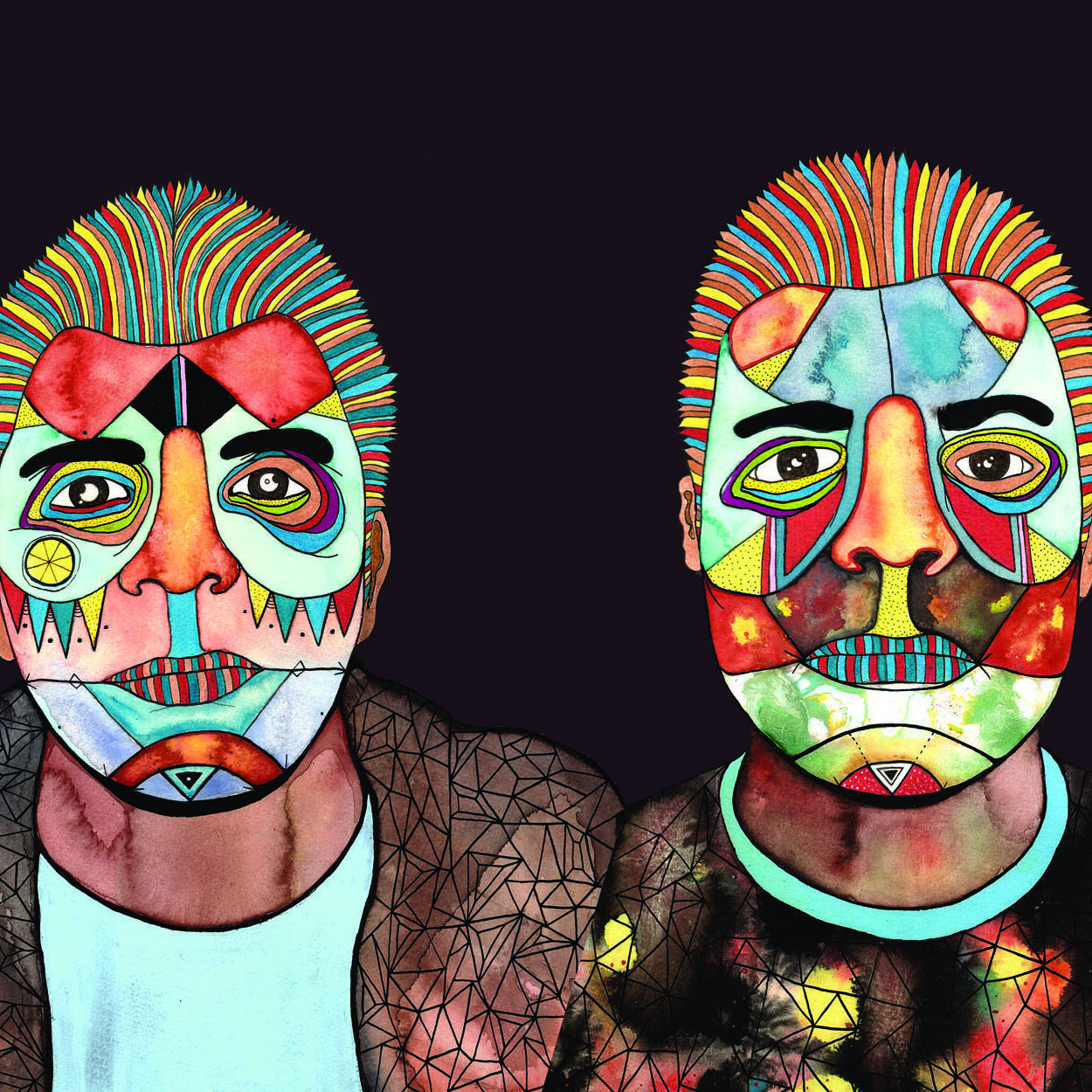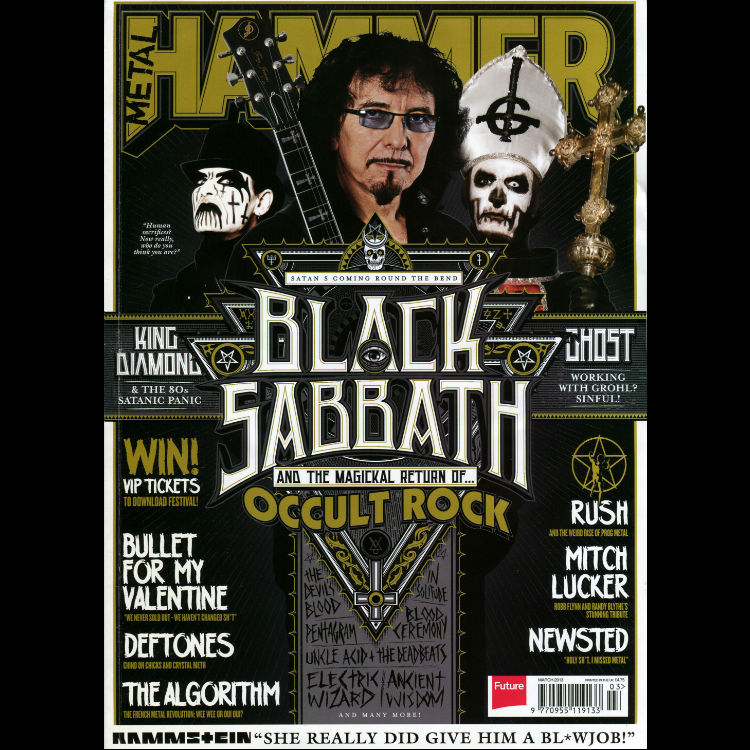 Photo: Press
Photo: Press
“What bands have you heard of from Portugal?” asks Nuno Saraiva, who works for WHY Portugal - a music exchange platform. I’m the first to arrive in Lisbon out of a group of international press for a Eurosonic affiliated introducing showcase of Portuguese bands at a club and have the luxury of a lengthy lunch with this person of dense knowledge ahead of the trip proper.
Pondering Saraiva’s question, I look down at my plate of squid, salsa verde, and chips in this ‘typical’ Lisbon neighbourhood restaurant and my mind goes blank for a second. “Terrakota,” I say after a lengthy pause. “But, honestly, I’d struggle to name you a lot of Portugese bands.”
I start to panic slightly and wonder why on earth I don’t know so many bands from here? Saraiva eases my frown. He’s a rather tall gentleman who holds his long brown hair back in a ponytail. He leans over his equally delicious looking plate of fresh fish in an unfazed manner, and gives historical context richer than your nan’s best gravy as to why Portugal has been largely overlooked not just me but music fans as a whole.
“This country was in a dictatorship until the mid-‘70s and we’re playing catch up,” he says. “While the rest of Europe was enjoying The Beatles and The Stones we had Fado and government approved imports. If you had swearing, incentives to revolution or were against politics your music was prohibited.”
Indeed, Portugal considering its incredibly liberal present has a surprisingly controlled from the top down until very recently. Their version of fascism started with a military coup in 1926 and in 1932 it transformed itself into the corporatist authoritarian regime named the Estado Novo (new state) which lasted up until 1974 – this dictatorship is considered the longest on the European stage.
For decades, life in Portugal was government approved; god, patriarchy and family or football, Fatima and fado were fine. Sex, drugs and rock ‘n’ roll was not; that had to go underground.
António de Oliveira Salazar, their conservative and nationalist leader, who founded Estado Novo, cemented the above values with firm determination during his reign. The secret police, the PIDE, would haul away any revolutionary-leaning reformist thinkers in the middle of the night.

After his death in 1968, Marcello Caetano continued to keep up appearances, but it wasn’t to last long. 1974 was the year of the Carnation Revolution - a major historical turning point; it was the military coup that transformed Portugal into a democracy. At last, anything slightly daring or untraditional didn’t have to be kept a secret, freedom of expression could finally take place which is brilliant news for music
As our mains are taken away and replaced with the unavoidable Portugese staple, the espresso, Saraiva ponders that there’s been a hangover from this for some time. “Still, it takes a generation for people to truly feel (somewhat) free,” he says. And from what I gather, the volume of bands has only just begun to mushroom. The most complete infrastructure in place to launch a band on the international stage has only just happened. Perhaps it’s not so unusual to not know heaps about contemporary music from here.
However, I get the sense from Saraiva that enough is enough and that now is the time to get to know it/ His personal ambition seems to be to get rid of the day he has to ask someone, “Do you know any bands from Portugal?”
Fortunately, he’s in better stead than ever. Being Focus Country at Eurosonic is the biggest showcase of Portugese music has had outside of Portugal in the country’s history. There are 21 acts scheduled to play it’s the highest number a Focus Country has ever been given and exponentially bigger number than they usually get. Portugal are usually one of the least prevalent countries at Eurosonic; brutally under represented. So this change is very welcome especially at a festival which simiary to SXSW is of immense impotance in breaking bands internationally as industry delegates come from all over the world to engage with the carefully picked 350 bands from 31 countries.
But before I get to discover exactly who is leading the line for the country at the festival, Saraiva ensures I’m well aware of the credentials of the forefathers of popular first. Here are just a few of those I’m shown:
- Zeca Afonso was ahead of his time in that his songs are closely linked with the revolution as they were subversive to the time and helped build collective belief that change could be made.
- The late António Variações, whose first single came out in 1982, had innovative blend of contemporary and traditional Portugese rhythms is hailed as symbolic of the liberalization that occurred in Portuguese society after the Carnation Revolution of 1974.
- GNR (Grupo Novo Rock): The Duran Duran of Portugal, formed 1981.
- Sétima Legião: New Order with bagpipes using three different regional bagpipes (Portugal has history of indigenous Celts)
- Madredeu: Rodrigo Leao’s (solo artist playing Eurosonic) first band mixing fado with more contemporary folk and world music styles. Intelligent, moving music.
As for the new bands, my introduction begins at the Road To Eurosonic showcase at MusicBox, a basement style venue akin to London’s Cargo but smaller in size. Similarly to Shoreditch, this area of Lisbon thrives at night and it retains the feel of a place that’s been recently gentrified although not recent enough for it to be quite the hippest place in the whole city.
The streets outside the venue are lively, hedonistic people all edge their way into the closest bar, strip joint, or restaurant and exude unrestrained enthusiasm toward having a good time. The night sky seems like a veil for any self-consciousness and it’s immediately evident that Lisbon does nightlife well.
Drawing my attention away from the hustle and bustle on the streets outside and to the stage is We Bless This Mess. The singer, who is playing an acoustic set, rivals Frank Carter for his tattoo collection and focuses his four-to-the-floor acoustic rock ballads in a confident manner as if he’s giving his all. He’s at ease with his crowd of local followers and is unafraid to curse Trump who’s just been elected earlier today. Oh, I didn’t mention that, yes it was a grim night sleepless staring at CNN in despair.
Next up is NEEV, his baby-faced looks and fine-tuned vocal range make him seem cut out for the big time. He has an adoring fanbase and impresses with his mix of Muse-esque heavy guitar wig-outs and more serene pop moments.
Last up for the live music before the club turns into a DJ night are Holy Nothing. The guys look like three escaped baristas and conjure up some intensely imaginative electro-pop with into a strange and catchy mix that provides a euphoric escape. I’m just scratching the surface but we’re in good company musically.
My next introduction to new Portugese music comes after a rejuvenating sleep. The bright blue sky is a welcome sight after a long night in a dark venue and the setting in which I meet with labels and bands couldn’t be more different. We’re by the sea and in an open plan modern venue with plenty of light in which to see into each other’s eyes and low music so we can talk.
I sit along a long table and enjoy the informal atmosphere, cocktails are flowing as is conversation with :papercutz, (a band formed in 2005 with a sound that has shades of Brian Eno, Bjork, and Fever Ray) and We Bless This Mess. They speak of their city Porto, which is located 300 km north of Lisbon. It’s less decadent in aesthetic than the capital but according to the bands seems more fertile creatively.
The bands speak of an old run down shopping centre that’s been transformed into rehearsal studios and such are the volume of units available for long terms hire that the city’s musicians tend to congregate there and create music, paying very little rent in the meantime. Low rent an essential thing as they tell me making a living from music even if you’re charting in Portugal is next to impossible and both are looking out of their border, across the Atlantic, and up to Northern Europe to gain real traction.
Meanwhile, Octa Push, are an electronic duo that capture my imagination as soon as they hand me their album cover with African masks and also because it features collaborations with the excellent Terrakota. Octa Push are two brothers and share a family history in Guine Bissau. Their sound is as anchored in African polyrhythms and melodies as it is in UK bass and garage and is an exciting concoction of sound.
Subsequently it paints a holistic aural picture of modern day Lisbon, revealing how the African diaspora that’s occurred mainly after the independence of the African overseas provinces in 1974–75 and the rise of being able to download music from anywhere in the world has created whole new sonic inspirations for people living in Lisbon.
Back at the MusicBox venue it’s the final night of the Eurosonic warm-up and Surma, a one woman band who uses samples, loop stations as well as live bass guitar, keys and vocals to creates haunting experimental soundscapes to which act as a backdrop to her melancholic vocals that wash over you.
DJ Ride is a much more visceral affair, the six time Portuguese turntablism champion live mixes to a montage of humours film clips. Their amalgamation of hip-hop, pop, and rock perfectly timed with the visuals is an intense onslaught to the senses - his name suits the act perfectly as it is an intense ride. Ride does a well keeping the set short because you come out the other end breathless.
The Road to Euro MusicBox once again transforms form live venue to club and it packs out with techno ravers looking for transcendence through repetitive beats. It’s only a Thursday night but the venue promises a 6am close but my stamina falters before then and the more pastiche music does not live up to DJ Ride or any of the acts before it.
The showcase was of high calibre and showed an exciting array of talent from an eclectic range of musical styles that set the tone positively for a successful 2017 for Portugese acts.
It seems the young acts are certainly making up for lost time and doing those who campaigned for a democracy after four decades of fascism proud. They’re a group of restless creatives with sky-high ambition with the potential to transition away from being niche knowledge to popular go-to’s for music fans and are more than ready to fly their country's flag microscope at Eurosonic 2017.

















